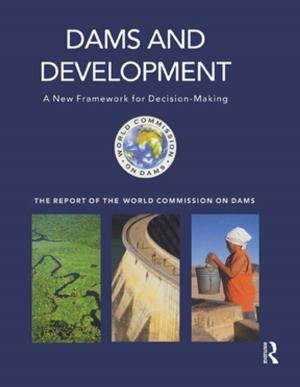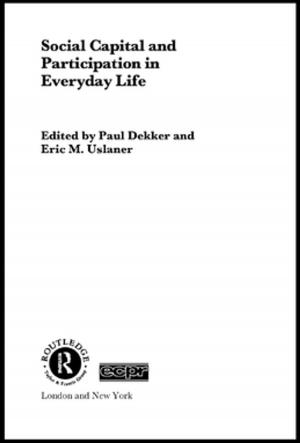Environmental Ethics
An Introduction and Learning Guide
Business & Finance, Economics, Sustainable Development, Business Reference, Business Ethics| Author: | ISBN: | 9781351277785 | |
| Publisher: | Taylor and Francis | Publication: | September 8, 2017 |
| Imprint: | Routledge | Language: | English |
| Author: | |
| ISBN: | 9781351277785 |
| Publisher: | Taylor and Francis |
| Publication: | September 8, 2017 |
| Imprint: | Routledge |
| Language: | English |
As the destructive consequences of environmental problems such as global warming, water scarcity and resource and biodiversity destruction have been felt ever more heavily, people are becoming more aware of the importance of and their responsibilities towards environmental protection. The causes of our problems are anthropogenic. The number of people working in what might be termed "environmental industries" or with environmental responsibilities in their day-to-day work has mushroomed. In many cases, however, individuals charged with protecting the environment have a set of empirical priorities: what *is* done, rather than moral priorities which consider what *should* be done. The need to harmonize environmental knowledge with ethical behaviour and thus achieve behavioural change and the internalization of environmentally ethical values has never been more urgent.
This book, developed as part of an EU programme to diffuse the application of environmental ethics to decision-making on pollution control, is a response to the need for a restatement of environmental ethics and for a code of behaviour and set of values that can be internalised and adopted to guide the actions by individuals at the sharp end of protecting the environment: decision-makers and environmental experts/executives/staff working in municipalities and public/government organisations throughout the EU and Turkey. It is nothing short of an ethical training manual that will guide environmental experts/decision-makers in making sound judgements and decisions and will act as a bridge between environmental knowledge and environmental behaviour.
The book will be essential reading for decision-makers and experts working in local authorities and governmental organisations with responsibility for environmental protection: for both graduate and postgraduate students in environment-related disciplines and for vocational education teachers with a focus on the environment.
As the destructive consequences of environmental problems such as global warming, water scarcity and resource and biodiversity destruction have been felt ever more heavily, people are becoming more aware of the importance of and their responsibilities towards environmental protection. The causes of our problems are anthropogenic. The number of people working in what might be termed "environmental industries" or with environmental responsibilities in their day-to-day work has mushroomed. In many cases, however, individuals charged with protecting the environment have a set of empirical priorities: what *is* done, rather than moral priorities which consider what *should* be done. The need to harmonize environmental knowledge with ethical behaviour and thus achieve behavioural change and the internalization of environmentally ethical values has never been more urgent.
This book, developed as part of an EU programme to diffuse the application of environmental ethics to decision-making on pollution control, is a response to the need for a restatement of environmental ethics and for a code of behaviour and set of values that can be internalised and adopted to guide the actions by individuals at the sharp end of protecting the environment: decision-makers and environmental experts/executives/staff working in municipalities and public/government organisations throughout the EU and Turkey. It is nothing short of an ethical training manual that will guide environmental experts/decision-makers in making sound judgements and decisions and will act as a bridge between environmental knowledge and environmental behaviour.
The book will be essential reading for decision-makers and experts working in local authorities and governmental organisations with responsibility for environmental protection: for both graduate and postgraduate students in environment-related disciplines and for vocational education teachers with a focus on the environment.















